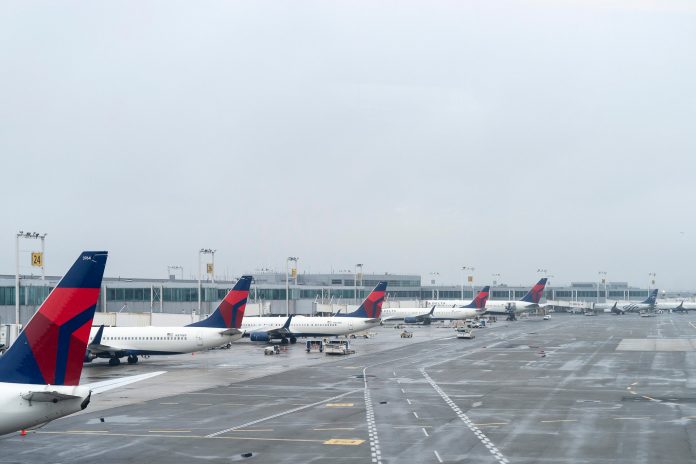Both AT&T and Verizon have clashed with airline operators, who claim that their new C-Band 5G towers could disrupt sensitive equipment
AT&T and Verizon have announced that the plans to activate some 5G towers around airports will be pushed back after airline operators warned that the deployment could cause “catastrophic disruption” to travel and shipping. While both carriers, to create buffer zones around 50 airports have an agreement with the Federal Aviation Administration, AT&T has confirmed that it’s halting the rollout of even more towers than originally planned, and that the decision applies to a “limited number of towers around certain airport runways.” Verizon responded to an email asking if it was planning on doing more than the agreement requires with a statement that says it’s “voluntarily decided to limit our 5G network around airports”.
AT&T is clearly unhappy with the situation. In a statement it said that it will “continue to work with the aviation industry and the FAA to provide further information about our 5G deployment, since they have not utilized the two years they’ve had to responsibly plan for this deployment”. The statement also said that the company is “frustrated by the FAA’s inability to do what nearly 40 countries have done, which is to safely deploy 5G technology without disrupting aviation services, and we urge it do so in a timely manner”.
Verizon expressed similar frustration, saying: “The Federal Aviation Administration (FAA) and our nation’s airlines have not been able to fully resolve navigating 5G around airports, despite it being safe and fully operational in more than 40 other countries”.
Both AT&T and Verizon have clashed with airline operators, who claim that their new C-Band 5G towers could disrupt sensitive equipment, making it difficult to land in low-visibility conditions. We have a great explainer that breaks down the whole situation, but the TL;DR is that this is just the latest in a series of delays.
To allow them to activate their towers on 19 January, except for in select areas around 50 airports, AT&T and Verizon made an agreement with the FAA earlier this month in an attempt to finally get the rollout started. On Monday, however, several airlines reportedly signed a letter sent to government officials, again warning about the rollout.
In a statement, United Airlines said on Monday that the 5G expansion would “result in not only hundreds of thousands of flight cancellations and disruptions for customers across the industry in 2022, but also the suspension of cargo flights into these locations, causing a negative ripple-effect on an already fragile supply chain”. The airline also said that it “implore[s] the Biden administration to act quickly and apply the same common sense solutions here that have clearly worked so well around the world”.
For his part, President Biden thanked the carriers “for agreeing to delay 5G deployment around key airports and to continue working with the Department of Transportation on safe 5G deployment at this limited set of locations” in a statement on Tuesday. He said that his team “has been engaging non-stop with the wireless carriers, airlines, and aviation equipment manufacturers to chart a path forward for 5G deployment and aviation to safely co-exist,” and that work would continue until they found “a permanent, workable solution around these key airports”.
Also read: CIO News interviews Shri Wangki Lowang, Minister (IT) of Arunachal Pradesh
Do Follow: CIO News LinkedIn Account | CIO News Facebook | CIO News Youtube | CIO News Twitter
About us:
CIO News, a proprietary of Mercadeo, produces award-winning content and resources for IT leaders across any industry through print articles and recorded video interviews on topics in the technology sector such as Digital Transformation, Artificial Intelligence (AI), Machine Learning (ML), Cloud, Robotics, Cyber-security, Data, Analytics, SOC, SASE, among other technology topic






